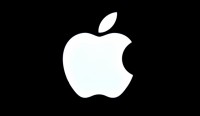Apple Allows Reader Apps to Use Outside Payment Systems
September 7, 2021
After an investigation by the Japan Fair Trade Commission (JFTC), Apple agreed to let Netflix, Spotify and some other companies use payment methods outside Apple’s App Store when users sign up for subscriptions. Analysts dub the move a “strategic retreat” from what has been a huge source of revenue for Apple. During Epic Games’ lawsuit against the tech giant, lawyers revealed that 81 percent of the App Store’s 2016 revenue came from games, 3 percent from music and 4 percent from other forms of entertainment.
The New York Times reports that, “Apple chief executive Tim Cook confirmed that the ‘majority’ of revenue still comes from games.” At Wedbush Securities, analyst Daniel Ives noted, “that’s something Apple will fight tooth-and-nail to defend,” adding that revenue from music and “so-called reader apps” is “negligible at best.”

The Justice Department is also pursuing an antitrust investigation against Apple and “last month, the Senate also introduced antitrust legislation aimed at fostering competition with both Apple and Google’s app stores.”
Although Apple faces similar battles in Europe, the UK and India, “the court fight with Epic … arguably presents the greater threat to Apple’s App Store business,” because the plaintiff “wants to force the iPhone maker to allow app developers to avoid App Store commissions altogether.” A verdict on this lawsuit is expected soon.
Regarding Apple’s recent move, Cowen analyst Paul Gallant said that, “a year ago, these concessions probably would have worked, and they still might, but legislators have built up momentum that could be hard to stop.” The momentum aims to eliminate or greatly reduce Apple’s 30 percent cut from in-app purchases and allow companies to install competing payment systems.
The just-announced changes “allowed a set of so-called reader apps — which provide content for digital media like books, newspapers, music and video — to steer their customers to their own websites to purchase subscriptions,” something Apple has, until now, never permitted. Spotify chief executive Daniel Ek said the change is a “step in the right direction, but it doesn’t solve the problem … [adding the goal is] to restore competition once and for all, not one arbitrary, self-serving step at a time.”
D.A. Davidson analyst Tom Forte noted that, “even in the worst case scenario — and I don’t think this will happen — where the commission goes to zero, the good news is Apple still makes a lot of money selling the device.”
The Verge reports, “Apple claims that the move will close an investigation by the JFTC … [and] the JFTC has confirmed … [that the move by Apple] would eliminate the suspected violation of the Antimonopoly Act.”
It notes that Apple “may be slightly redefining” what a reader app is, and adds that, when it rejected the Hey email app, “the company was very clear that email apps do not count as ‘reader’ apps.” In its press release, Apple specifies that “developers of reader apps do not offer in-app digital goods and services for purchase.”
Related:
Apple Cedes Ground as Larger Fights Over App Store Brew in Court, Congress, The Wall Street Journal, 9/2/21
Eight Things Apple Could Do to Prove It Actually Cares About App Store Users, The Verge, 9/3/21

No Comments Yet
You can be the first to comment!
Sorry, comments for this entry are closed at this time.